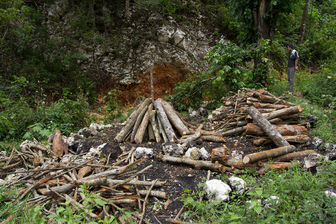 Tim Dobermann Increased food insecurity resulting from climate change is a big threat to many individuals living in the developing world, and likely to become increasingly so, especially with inadequate action on mitigation, as we're currently seeing. Unfortunately, the inequality of climate change means we will see the greatest health impacts falling on the world’s poorest – and those least responsible for the problem. Naturally, agriculture is a key issue for many parties here at COP. For much of Africa and South Asia, the incomes and health are directly linked to the yields of their crops. Moreover, it is one of, if not the most, climate-sensitive sectors. That agriculture can play a key role in both adaptation and mitigation - and that they need to be integrated better - has been a common theme voiced in many events thus far. Better management practices and techniques such as conservation tillage or proper application of fertilisers can both reduce emissions of the greenhouse gas nitrous oxide (among others) and improve the resilience of smallholder farmers in the face of climate change – and so help to protect against malnutrition. Frustrations and setbacks Unfortunately, in a late night (or more accurately early morning) session of the Subsidiary Body for Scientific and Technological Advice (SBSTA), it became clear that no formal progress on establishing a working group or body to focus on agriculture would be made. Perplexing to those outside the negotiations – but, as it seems, entirely normal within them – is that all sides agree on the importance of raising efforts into climate-smart agriculture, yet no substantial agreement can be found and so it has had to be pushed to the agenda for COP20 in Lima next year, to many Parties’ and NGOs' dismay. Farmers and their families deserve so much better. Silver linings However, there is some good news amongst the largely frustrating negotiations. Comparatively little attention has been given to the advancements thamade in reducing emissions through deforestation and land degradation (REDD+), where the plus represents considerations about biodiversity and local and indigenous communities’ rights. Forests serve as natural ‘carbon sinks’, which take in carbon dioxide and release oxygen through photosynthesis. Parties have quickly recognised these benefits, and have readily moved towards mechanisms which can help to incentivise and implement these types of projects. Brazil has made significant leaps in reducing its emissions by combating deforestation; much could be gained by supporting other developing countries such as Indonesia to do the same, although the surge in global demand for palm oil of recent years poses a major challenge for REDD+ - and for climate and biodiversity. What now? The next few days see the start of the ‘high-level segment’ of the UN climate talks, where ministers and heads of state arrive to flex their political muscle in the negotiations. This next week should be seen as an opportunity to bring forth practical and comprehensive steps forward in the lead-up to a potential 2015 agreement in Paris. Genuine progress can be made on the issues concerning climate finance, ambitions for mitigation, and loss & damage. It is clear that no big agreement will be reached in Warsaw, but this does not prevent it from laying out a solid framework to build upon in Lima, when the Parties meet next in 2014, and in Paris in 2015.
0 Comments
Your comment will be posted after it is approved.
Leave a Reply. |
Details
Archives
February 2019
Tags
All
|
 RSS Feed
RSS Feed
